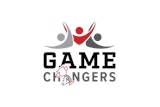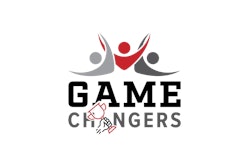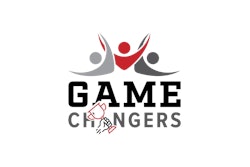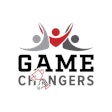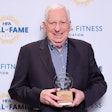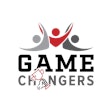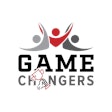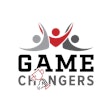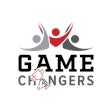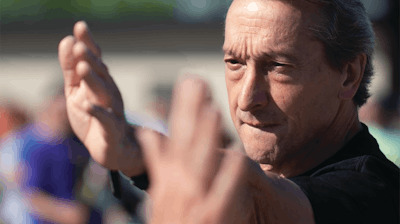
Richard Dodd qualified for his first Boston Marathon at age 18 in 1978, founded a four-mile run in his hometown that has been held annually on the Fourth of July since 1979, and set the Wisconsin state record for the 50K distance (essentially a marathon plus five miles) in 1982 — a record he still co-holds with his twin brother Pete and at the time one of only three sub-three-hour efforts ever posted in U.S. history. With the running world at his feet, a Saucony-brand shoe sponsorship followed. Fast forward to 2006, when Dodd saw a 16-year career as a running coach at his high school alma mater interrupted — and his adult life nearly ended — by alcoholism and three OWI citations in a span of eight months. Ironically, given his history as an elite runner, each traffic stop resulted from his driving too slowly. Since completing a prison sentence and rehab, a 14-years-sober Dodd is again sharing his distance-running knowledge with high school track and cross-country teams in the Greater Milwaukee area. AB senior editor Paul Steinbach asked Dodd to recount his course correction, and how his love of running and coaching saved him from personal destruction.
Can you describe how running has evolved over the span of your career?
I’ve been a distance runner for 50 years, so I’ve seen a lot of ebbs and flows. A few years back, we were kind of in the midst of what I would call the second running boom. There was a running boom in the early ’70s, and that’s when I got involved as a young teen. We might not have had all the technology and fancy shoes and whatnot, but we ran a hundred miles a week. We lived, ate, breathed running. Then I would say the 1990s were kind of a dead zone for the sport of distance running nationally, and there was a big drop in the number of events and participation. But then a little after the year 2000, the kids of the first running boom kind of mushroomed into a second running boom that had more volume, I think, than the first running boom. The race times weren’t as fast anymore, but all of a sudden, brand-new events were popping up. The event companies would go all over the place and do like the Rock ’n’ Roll Half Marathon series. Let’s face it, it was a changed world in 2000 from 1970, thanks to the worldwide web. And where there’s money to be made, event companies are going get involved. It just became a big business, truly, for companies to put on huge national and global events for that second running boom. There are economies of scale. If an event makes $10,000 and you do 50 of them, all of a sudden you have half a million dollars.
Any sign of it slowing down?
I think the second running boom was already starting to wane. It was kind of starting to outlive its useful life and then the pandemic hit, and they had to start canceling events. So, I really think we’re going to have a little bit of a down period here again, and then a third running boom will be the grandkids of the first running boom.
Are today’s runners better athletes?
I’ve seen data out there saying the average marathon time from this current running boom is like 40 minutes slower than the average time from the first running boom in the ’70s. That’s a minute and a half per mile, which is pretty significant. Say the average time was seven minutes in the first running boom. Now it’s eight and a half, and it’s probably more like eight minutes and nine and a half. And people from the first running boom almost looked a little down on the second running boom. I don’t think that’s rightfully so. If you truly like athletics and like coaching and want people to get involved, it doesn’t really matter what their finish time is. The fact that they’re getting off the couch and doing it ought to be enough. I think there may have almost been an unhealthy aspect to the ’70s running boom, as far as people maybe just got kind of obsessed with it and ran a little bit too much. They were very injury prone. Often, they switched to bicycling or something where they weren’t pounding on their joints.
How has the Boston Marathon changed?
The Boston Marathon was a small affair back when I first started running in the late ’70s and early ’80s. That running boom was so fast and was still so popular that they got plenty of runners even with the tough standards. They put qualifying down to two hours and 50 minutes, which was a pretty serious marathon time. They were limited to about 7,000 runners, and now it’s a 30,000-runner affair. They made the standards easier because they realized not only could the course handle more people, more people means more money — not only to the race directors through fees, but the hotels and restaurants. When you bring 100,000 people into a city versus 10,000 people, let’s face it, all the monies are tenfold. Then what happened in the early 2000s, when the second running boom came on board and more and more people started beating those qualifying standards, Boston actually got to a point in the last 10 years where they’ve had to make their standards tougher and start turning people away. I’m not going to lie to you, when I ran it in the late ’70s and early ’80s, we weren’t crowded. My first year back at Boston was 2013, which unfortunately turned out to be the bombing year.
How aware were you of the terrorism taking place that day?
I finished in three hours and 18 minutes, and about 50 minutes later — at the four-hour-and-eight-minute mark — the bombs went off. Because this was the first time I had run it where it was over 30,000 runners — we were 10 wide, minimum, across the street at all times — and there’s over a million spectators. I mean, as tragic as this was, it’s almost amazing that it wasn’t more tragic. My girlfriend and her son were waiting for me at the last turn of the race, which is pretty famous. They saw me and then they moved to the family waiting area, but they were literally right in the spot where the bombs eventually went off. For the umpteenth time in my life, it helped me to be a little bit faster of a runner because I got through the finish line before that.
Did you hear the explosions?
We heard the first explosion as we were entering a subway tunnel and, to me, it sounded like a building facade falling. I thought it was like a construction-type accident taking place. Then, like 40 seconds later, we heard another one, and I remember telling my girlfriend, “This is some kind of like terrorist act.” When two explosions go off that close together, somebody planned something. And then all of a sudden, the police came running up out of the subway. We were not allowed out to get on the subway in light of what happened. My one lasting memory is all the sirens and all the police choppers and news choppers overhead, seemingly nonstop. We really didn’t have any idea what had truly happened. And then we started walking back up the race route, and they were telling all the runners they couldn’t finish. Somebody had a TV on out in their front yard. They had probably been watching the race unfold, but it had the news on, and they were talking about bombs at the finish line. That’s when it really kind of hit us. The gravity of what had happened really enveloped us. It was the slowest marathon I’d ever run, but it certainly has the significance, and I’ll never forget it for as many days as I have remaining on the planet.
When did you peak as a competitor?
I think ’83 was kind of a watershed year, certainly for me and also my twin brother. And we went out to the Boston Marathon, placed very high and for me, anyway, I would have to say that was my career year in running. In ’83 we started really running a lot faster. The one thing that 50K did for the both of us, all of a sudden it made the marathon distance feel short. You know, when you’re 24 years old and on top of your game, and don’t really have a whole lot of responsibilities in life, you gotta make hay while the sun is shining.
What made you great marathoners?
We were twins and basically had the same genetics, but we didn’t have a lot of leg speed. We were around four and a half minutes for our fastest open mile ever, which sounds fast, but at the collegiate level you’re in last place with a time like that. But we could run a five-minute pace, just 30 seconds slower, and we could run that for 20 miles straight. We didn’t have a lot of leg speed, but we had what they call max VO2 — how well you take in oxygen. This was an era where there weren’t all these gels or fancy things. Our watches were very primitive. We weren’t using GPS. It was just kind of blood and guts, and run until you fall completely apart. Between our genetics and mentally, I think we were pretty tough. We did a pretty good job at it. Back in the ’70s, being able to qualify and run the Boston Marathon was pretty big stuff, especially for a kid who never made a state meet in high school.
You’re director of Ethan’s Run Against Addiction. Who’s Ethan?
Back in 2005, unfortunately, and unbeknownst to most people, I was starting to battle my own demons with alcohol addiction. But it hadn’t gotten to the point where it started to get me in legal trouble. Not quite, anyway. I was coaching at Whitnall High School in Greenfield, and we had just taken fifth in the state meet that year. We were one of the top five boys’ cross-country programs in the state of Wisconsin at that time. The Milwaukee Journal Sentinel named me area coach of the year. I had a young man named Ethan, an exceptional freshman runner who nearly cracked our varsity lineup on a team that took fifth at the state meet. Unfortunately, my problems came to light that very next spring. I wasn’t fired, but I was told under no uncertain terms that I would have to leave coaching. Not long after that, I was going to be put in a position where I would not possibly be able to coach from a jail cell. So, I was Ethan’s freshman coach, and then I got out of coaching. His parents were really good friends of mine. His dad was a police detective and his mom is a behavioral psychologist, and Ethan — not freshman year, when I coached him, but a little bit later on toward the end of his high school days and beyond — was overprescribed, so to speak, opioids and then developed an opioid addiction. He got his college degree, got pretty decent jobs right out of college. But then at age 25, he relapsed and died of an opioid overdose.
How did the run/walk come to be?
At the funeral, I took his uncle aside, because I was involved with the Elevate Run Against Alcohol and Drug Addiction in Washington County, in West Bend. I encouraged some of their family members to come and run that in his honor, which the mom and sister did the following spring. But then I also said, “Maybe we can make good out of bad here and get something started in Ethan’s name.” Ethan’s Run Against Addiction was born, and this will be the fifth annual coming up. Over $300,000 has been raised for the Ethan Monson-Dupuis Opioid Recovery Foundation at Aurora Healthcare.
What’s the status on the opioid crisis overall?
This latest opioid epidemic was actually getting better, and then the pandemic made it mushroom again because everybody’s lonely and depressed. In the addict’s world, in the recovery world, the worst things are to be lonely, depressed and isolated. You’re probably going to isolate yourself with the drug of your choice, and whether it’s alcohol or opioids, it doesn’t really matter. Doing more of it because you’re depressed and sad and lonely oftentimes results in death, and opioid deaths have been way up. I’ve come from a role of recovery now where alcoholism took me to really deep depths, to the point where suicidal ideation or dying by an accident was a very real possibility.
How bad had your drinking become?
I refer to 2007 as my lost year. I held no gainful jobs. Morning, noon and night, I literally drank any money I had left away, and all my time away, just trying to get as drunk as I could on a daily basis. I didn’t get any more OWIs. I wasn’t driving. I didn’t have a driver’s license or a vehicle. I was taking the county bus in Milwaukee to any bars that were on a bus route. I was in the bars at 6 a.m. And if I wasn’t there, I was at home with a 30 pack, isolating, just drinking myself into oblivion. A heart condition developed that I’ve had two heart procedures for. I clearly was trying to commit suicide through the bottle. Thankfully, it didn’t work, but it almost did. I was losing hair by the clumps. I was throwing up bile. I had some serious physical issues going on.
By then, you had already experienced the three drunken driving stops.
My first drunk driving was in August 2005. My first one, I knew I was guilty. Your first one’s a misdemeanor and they send you to a class that you have to go through. But six weeks later, I picked up another one and I was like 0.08 [blood alcohol content, the legal limit in Wisconsin] on the nose. I literally had three quick beers on an empty stomach. People need to know the legal standard really can be reached quite quickly. I lawyered up and tried to fight that one tooth and nail, and was in the process of doing so, and then I picked up my third, and then all bets were off. Three in an eight-month period is pretty indicative of a problem. Let’s face it, at some point the rubber has to meet the road, and when the court system and judges see that you’ve had three pullovers, even though I didn’t have any accidents or run into anybody or anybody’s property, they know you’re a ticking timebomb. I had a judge who looked over her glasses and said, “Mr. Dodd, you’re a menace to society.” And that hurt. And I didn’t want to believe her, but you know, now 15 years later, looking back with 20/20 hindsight, she was right.
What was your sentence?
It was seven months, but then with good time, I served five months. This was literally the same year that I was the Journal Sentinel coach of the year. I went from hero to zero in six seconds flat.
What turned it around for you?
Somehow my sister from Madison got through to me on a phone call and said, “If we bring you to Madison for treatment, will you go?” And I had a moment of clarity, and I said, “Yes.” And that’s my sobriety date — the very next day: Jan. 10, 2008. Went to detox and treatment in Madison and got transferred into halfway-house living. The big place that did it for me is called Rebos Chris Farley House after a native Madisonian [and “Saturday Night Live” star] who died a drug-and-alcohol-fueled death at a very young age. That place saved my life.
This is not the first interview you’ve done about your history.
I’ve been pretty open about it. Alcoholism is a disease of the mind and body. We can’t stigmatize it and try to bury it under the rug, which is what my family did growing up. My twin brother and I were the youngest in the family, and we were basically told lies about what was going on with our dad — and all good intent. They didn’t want to hurt us. But when our dad was in jail for drunk driving, we were told he was on a business trip. Your secrets keep you sick, and then when you find out 40 years down the road what actually happened, you’re kind of upset that things were being kept from you. Alcoholism, especially in this state, is a family disease, and everybody, to a certain extent, in the family structure is a little bit sick. My dad got sober eight years before he died. I was only 16 when he got sober. He died when I was 24. But I think to a great deal, he got well, but nobody else did. The rest of us were all still somewhat sick. When you have an alcoholic in the house, that’s an easy cat to kick and you can pretty much blame everything on that individual. But when that individual straightens out, where do you point fingers at? Alcoholism is so insidious, and it really affects everybody in the family structure.
How did your own addiction manifest itself?
Because of our father’s drinking issues, we poo-pooed that and we threw ourselves into running. If I really seriously look back at the running I did in the late ’70s, early ’80s, it was probably somewhat addictive in nature, but it was more of a positive addiction for the most part. But we swore off drinking because of our family problems until our 18th birthday. That was the legal age at the time. But I’m not gonna lie, on my 18th birthday, I threw back half a dozen drinks and it felt pretty good. Alcohol is a real sucker punch, because the first couple can make you feel somewhat giddy and euphoric, but it is a depressant in the drug classification world. After about two, three, all of a sudden four or five, six, start taking you down a black hole, and it might never end. I mean, we were addictive in nature in just about everything that we enjoyed, and at some point that included drinking alcoholic beverages. I’m a strong believer in that there’s a genetic predisposition toward it. It is well known that if you’re a family member of an alcoholic, and our father was definitely alcoholic, that you have a four-times-greater chance. Our family structure had a 40 percent chance of the kids being alcoholics, and it worked out right on the screws. Two out of five, my older brother and I, were certainly alcoholics.
You’re around high school students again. Do you have a sense for how prevalent drinking at that age is compared to our generation?
Teenagers are highly impressionable, and not only psychologically, but there’s empirical evidence that shows you how much your brain is still developing at that point, and to introduce drugs and alcohol into a teenager, it can really have lifelong bad effects. I’m not going to say it doesn’t happen, but the alcohol-related incidents that I hear about amongst high schoolers is way down from your and my era.
Do you share your past with your student-athletes?
Trying to pretend like they don’t know and trying to hide it from them probably isn’t the best course of action. That being said, I had to be very careful. I’m not a full-time employee at the school. I have to make sure what I do or say doesn’t get me removed from my position. That’s the tightrope to walk for a person like me, because I would have no problem sharing it if I was 14 years in remission from cancer. If I went out and told the world about that, would I be looked down upon? I don’t think so. But God forbid you tell somebody you were a former addict and you’re in recovery. Alcohol is an addiction just like any other drug. I think more information should be out there that it’s not exactly the greatest thing to do, especially for a teenager. There’s a group in my high school — an anti-smoking, drugs and alcohol type group — and I did speak to them in December about my problems and that I was incarcerated. Not that I want to create a scared straight scenario, but when you tell kids that not only did you lose jobs, but you lost your freedom, and you very nearly lost your life to an alcohol addiction, it might make a teenager think twice about how much they’re going to imbibe.
How many miles are you logging these days?
I did have the two heart procedures and one of them was only about two years ago, for AFib [atrial fibrillation], so I gotta kind of keep a handle on that. And I did have both legs and both feet operated on. I’m close to 63 years of age, but I get out like three times a week and my average length is four or five miles, so about 15 miles a week. I was once a 100-mile-a-week runner, so that really pales in comparison. The pandemic really curbed some of the racing I was doing, but I was winning my age group in most local races that I went to. I ran two really good half-marathons past the age of 60.
What role has running played in your recovery?
In the end, I went back to what really did it for me as a teenager, before the drinking ever started. And that was long-distance running. For both my twin brother and me, it’s the only thing that’s ever really come completely natural to us. And judging by the success that we had together, we chose the right avenue.
How can you take what came naturally to you and impart technique on kids who maybe aren’t natural runners?
The sport of distance running is probably 50 percent mental and the other 50 percent physical. Obviously, if you don’t have the physical tools at all, that’s gonna be a little bit hard to completely overcome. In my coaching career, I’d like to think I’ve taken a lot of relatively average runners and made them quite good just by refining things and doing the right type of workouts. I got extremely lucky myself. I had some amazing coaches who are now hall of famers. One of my college coaches said to me, when I told him I was going to get into coaching — and this would’ve been in the mid-’80s — he said, “Kids aren’t gonna care how much you know, but they wanna know how much you care.” And, you know, it’s just kind of a funny thing, but I think it means a lot. If a high school kid, no matter what their ability coming in or going out is, if they know you care about them and their performances and are genuinely interested in them improving themselves, that means a lot to a high school kid.
What makes cross country special?
It’s a no-cut sport that’s all-inclusive. I take great pride in my athletes, and I’m not talking about the top-notch ones. I’m talking about all of them. If a kid comes in and he is running 26 minutes, and by the end of the year, he is running 22 or 21, I get a big kick out of that. Running is a great sport in that anybody and everybody can pretty much do it. You can all improve drastically with a certain amount of hard work and effort. And I also like to really work on the psychological aspect, because I think that’s where my twin brother and I were pretty tough. Maybe we didn’t have quite the leg speed others did, but we were able to push ourselves to limits that, really, we never could have expected.
Does the sport give you warm feelings about things that really matter, thus aiding in your recovery?
No doubt about it. Honestly, when the drinking got really heavy for me about 2005, and this was even before I started to get drunk driving tickets, it physically started to take such a toll on my body that I really was unable to run like I used to, so I just gave it up. I actually did not run a step for about four years. In 2009, when I was in recovery and living in a halfway house, they want you to tell stories, and I was telling them about the Boston Marathon and all these crazy things that I did in the sport of running. And they’re like, “You gotta run again. A big part about being an alcoholic is you stopped doing what you really enjoyed and supplanted that with drinking alcohol.” And, so, to kind of reverse that process, I actually started running again. I just started to feel free again — not only free of alcohol, but just free as a human being. One step led to another, and then I qualified for the Boston Marathon. It took a couple years to get back to that kind of running, but it was the one and only thing that ever came natural to me in my life, and I abandoned it for alcohol. But then I got it back. And to think I was able to run four straight Boston Marathons in my mid-50s after nearly dying in my late 40s from alcoholism? Pretty amazing stuff.
How did you manage to get back into coaching?
Once I became incarcerated, I never thought I would ever coach again. I wrote a long letter by hand and expressed my desire to get back into coaching, that I knew I had made mistakes, and you can easily find them online, but I’m a changed man. At that point, I was like four years sober. I said I just want to get back involved with kids again and the sports of cross country and track. And lo and behold, two months later, I got a call and an interview. And two days after the interview, I got a job. I never thought I would ever be able to coach again, and this is my 10th straight year of coaching now. The five months that I sat in the house of correction, rotting away, I figured I would never have a life again. And now I do. I mean, what a wonderful world.














